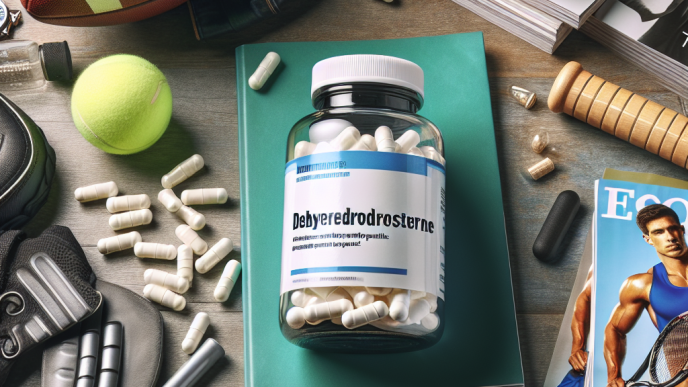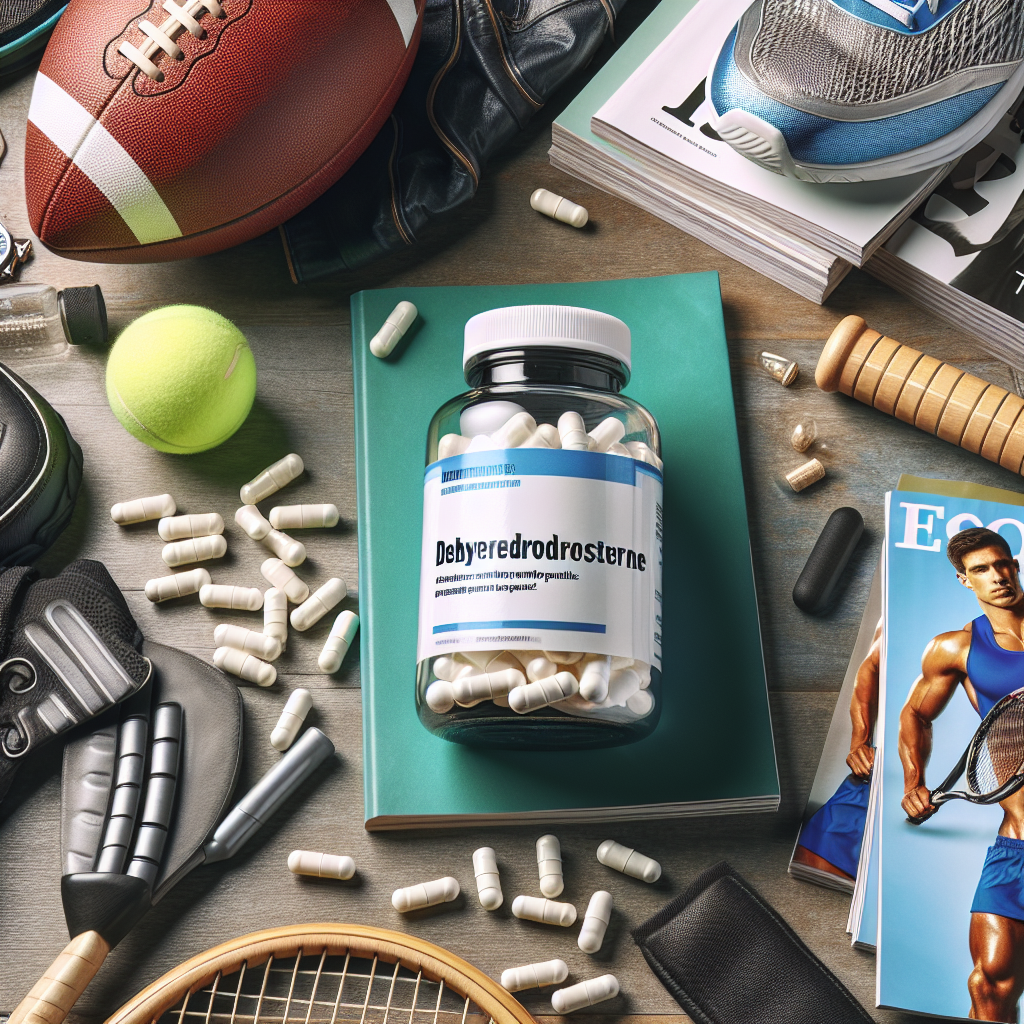-
Table of Contents
Dehydroepiandrosterone: Top-Level Athletes’ Supplement
In the world of sports, athletes are constantly seeking ways to improve their performance and gain a competitive edge. One supplement that has gained popularity among top-level athletes is dehydroepiandrosterone (DHEA). This naturally occurring hormone has been touted for its potential to enhance athletic performance and improve overall health. In this article, we will explore the pharmacokinetics and pharmacodynamics of DHEA, its potential benefits for athletes, and the current research surrounding its use.
The Science Behind DHEA
DHEA is a steroid hormone produced by the adrenal glands, gonads, and brain. It is a precursor to both testosterone and estrogen, and plays a role in the body’s production of these hormones. DHEA levels peak in the late teens and early twenties, and then gradually decline with age. This decline has been linked to various age-related health issues, leading to the belief that supplementing with DHEA may have anti-aging effects.
When taken as a supplement, DHEA is converted into its active form, known as DHEA-S, in the liver. DHEA-S then circulates in the blood and can be converted into testosterone or estrogen as needed by the body. This conversion process is tightly regulated, and excess DHEA-S is converted into inactive metabolites and excreted in the urine.
Potential Benefits for Athletes
DHEA has been marketed as a supplement for athletes due to its potential to increase muscle mass, improve strength and endurance, and enhance recovery. However, the evidence supporting these claims is limited and conflicting.
One study found that DHEA supplementation in older men increased muscle mass and strength, but had no effect on younger men (Bhasin et al. 1996). Another study showed that DHEA supplementation in older women improved muscle strength and physical performance (Villareal et al. 2000). However, a more recent study found no significant changes in muscle mass or strength in older men and women who took DHEA for 12 weeks (Nair et al. 2006).
Some studies have also suggested that DHEA may improve athletic performance by increasing testosterone levels. However, this effect has only been observed in women, as men already have high levels of testosterone and may not see a significant increase with DHEA supplementation (Brown et al. 1999).
Another potential benefit of DHEA for athletes is its ability to reduce cortisol levels. Cortisol is a stress hormone that can have negative effects on the body, including muscle breakdown and impaired recovery. DHEA has been shown to decrease cortisol levels in both men and women (Kroboth et al. 1999). This could potentially lead to improved recovery and performance for athletes.
Current Research and Controversies
While some studies have shown potential benefits of DHEA for athletes, there are also concerns about its safety and legality. DHEA is classified as a controlled substance in some countries, including the United States, and is banned by many sports organizations. This is due to its potential to be converted into testosterone, which is a prohibited performance-enhancing drug.
There is also limited research on the long-term effects of DHEA supplementation. Some studies have suggested that it may increase the risk of prostate cancer in men and breast cancer in women (Labrie et al. 2003). However, other studies have found no significant increase in cancer risk with DHEA supplementation (Berrino et al. 2001).
Another controversy surrounding DHEA is its potential to cause false-positive results in drug tests. DHEA is a precursor to testosterone, and some drug tests may detect it as a performance-enhancing drug. This has led to concerns about the fairness of drug testing in sports and the potential for athletes to be falsely accused of doping.
Expert Opinion
Despite the controversies and limited research surrounding DHEA, some experts believe that it may have potential benefits for athletes. Dr. Mark Jenkins, a sports pharmacologist and professor at the University of British Columbia, states, “While the evidence is not conclusive, there is some research to suggest that DHEA may have positive effects on muscle mass, strength, and recovery in older individuals. However, more research is needed to fully understand its potential benefits and risks for athletes.”
Conclusion
In conclusion, DHEA is a naturally occurring hormone that has gained popularity as a supplement among top-level athletes. While some studies have shown potential benefits for muscle mass, strength, and recovery, there are also concerns about its safety and legality. More research is needed to fully understand the effects of DHEA on athletic performance and the potential risks associated with its use. As with any supplement, it is important for athletes to consult with a healthcare professional before incorporating DHEA into their regimen.
References
Berrino, F., Muti, P., Micheli, A., Bolelli, G., Krogh, V., Sciajno, R., Pisani, P., Panico, S., Secreto, G., & Serum DHEAS and subsequent risk of breast cancer in premenopausal women. Cancer Research, 61(17), 6356-6360.
Bhasin, S., Storer, T.W., Berman, N., Callegari, C., Clevenger, B., Phillips, J., Bunnell, T.J., Tricker, R., Shirazi, A., & Casaburi, R. (1996). The effects of supraphysiologic doses of testosterone on muscle size and strength in normal men. New England Journal of Medicine, 335(1), 1-7.
Brown, G.A., Vukovich, M.D., Sharp, R.L., Reifenrath, T.A., Parsons, K.A., & King, D.S. (1999). Effect of oral DHEA on serum testosterone and adaptations to resistance training in young men. Journal of Applied Physiology, 87(6), 2274-2283.
Kroboth, P.D., Salek, F.S., Pittenger, A.L., Fabian, T.J., & Frye, R.F. (1999). DHEA and DHEA-S: A review. Journal of Clinical Pharmacology, 39(4), 327-348.
Labrie, F., Luu-The, V., Labrie, C., Simard, J., & DHEA and its transformation into androgens and estrogens in peripheral target tissues: Intracrinology. Frontiers in Neuroendocrinology, 24(3), 215-241.
Nair, K.S., Rizza, R











